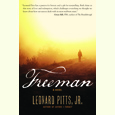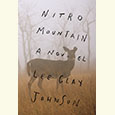Stories More Like Memories
A family’s storytelling tradition hides and reveals a history of domestic abuse
The Crocodile Bride, the debut novel by Ashleigh Bell Pedersen, is a gripping family saga about the power of storytelling — especially its ability to warm and soften the edges of cold, harsh reality. Pedersen creates a world at once tragic and beautiful, violent and magical, desperately impoverished yet rich in meaning.
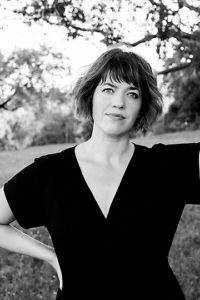 It’s the summer of 1982 and Sunshine Turner is about to turn 12. She lives with her father, Billy, in the tiny village of Fingertip, Louisiana, located near the Atchafalaya River. One of the New Deal communities founded by Eleanor Roosevelt to help families recover from the Great Depression, Fingertip once offered 99-cent mortgages and guaranteed jobs at a nearby sugar mill. Sunshine’s grandparents settled there in 1942 (population: 62), but since the sugar mill closed, jobs are scarce, and the few families who have not left have sunk into poverty.
It’s the summer of 1982 and Sunshine Turner is about to turn 12. She lives with her father, Billy, in the tiny village of Fingertip, Louisiana, located near the Atchafalaya River. One of the New Deal communities founded by Eleanor Roosevelt to help families recover from the Great Depression, Fingertip once offered 99-cent mortgages and guaranteed jobs at a nearby sugar mill. Sunshine’s grandparents settled there in 1942 (population: 62), but since the sugar mill closed, jobs are scarce, and the few families who have not left have sunk into poverty.
Sunshine has never met her mother. Her father says he found her as a baby tucked inside a Florida orange crate delivered by a great blue heron to the front porch of their yellow bungalow. He raises her on the stories he learned from his mother, Catherine, who hails from a fictional version of Portland, Tennessee, where part of the novel is set.
Catherine told bayou stories of witches and trolls, ghosts and “haints,” and above all, the story of the crocodile bride — a small, dark woman in a white dress who lives deep inside the legendary Black Bayou, in a house built on top of the crocodile’s disembodied heart. The crocodile bride is a healer, and people travel from far and wide to see her: “She didn’t need to speak or be spoken to. She didn’t need an explanation of pain, a teary confession or plea. She simply lay her hands on the injured or sickly or heartbroken, and inside of her, an understanding pooled like cool green water.”
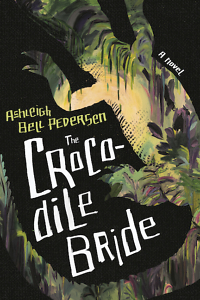 In contrast, the crocodile is an enormous and insatiable beast, with “cracked, yellowed teeth like blades” who greedily gobbles down the gifts — coins, jewelry, silverware — brought as a sort of toll to enter the bride’s sanctuary. Those who forget to bring a gift are liable to be gobbled down themselves. In fact, the crocodile isn’t particular about what he eats: “He swallowed the palmettos that spiked the shoreline, the lily pads, the snapping turtles, a wagon wheel encrusted with rust and small snails. He swallowed whole families of alligators, then he chewed his way through their marshy den, teeth gnawing through the mud as though it were chocolate cake, licking his lips in what was, unfortunately, only a brief moment of satisfaction.”
In contrast, the crocodile is an enormous and insatiable beast, with “cracked, yellowed teeth like blades” who greedily gobbles down the gifts — coins, jewelry, silverware — brought as a sort of toll to enter the bride’s sanctuary. Those who forget to bring a gift are liable to be gobbled down themselves. In fact, the crocodile isn’t particular about what he eats: “He swallowed the palmettos that spiked the shoreline, the lily pads, the snapping turtles, a wagon wheel encrusted with rust and small snails. He swallowed whole families of alligators, then he chewed his way through their marshy den, teeth gnawing through the mud as though it were chocolate cake, licking his lips in what was, unfortunately, only a brief moment of satisfaction.”
It’s not the tall tales, fables, and folklore of their swampy home that haunt Sunshine’s family, but the desperate cycle of abusive men who have damaged their wives and children with their words and fists. Sunshine lives in a ramshackle home with too little food and too little care. Her father disappears for days at a time, and when he is home, she watches carefully to see whether he will be in a pleasant “June mood” or if his drinking and depression will cause dark clouds to descend. “It could be blue-skied over Fingertip,” she explains, “but pouring down rain inside the yellow house.” Sunshine is wildly imaginative and curious about many things, but her life is lonely and confusing. She has many questions but too few answers, especially about her father’s increasingly alarming behavior.
Throughout the narrative, Pedersen allows Sunshine’s aunt and grandmother to tell their own stories of domestic abuse, lost dreams, and the price they paid by remaining silent. Sunshine, burdened by her own fears and secrets, follows their example at first. Then late one night when the darkness threatens to engulf her, she runs out into the swamp in search of help, setting in motion events that will change her family forever. “Sometimes stories were like that,” Pedersen writes. “It was like you were born knowing them deep in your bones, and when you finally heard them told, they were more like memories.”
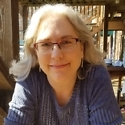
Tina Chambers has worked as a technical editor at an engineering firm and as an editorial assistant at Peachtree Publishers, where she worked on books by Erskine Caldwell, Will Campbell, and Ferrol Sams, to name a few. She lives in Chattanooga.
